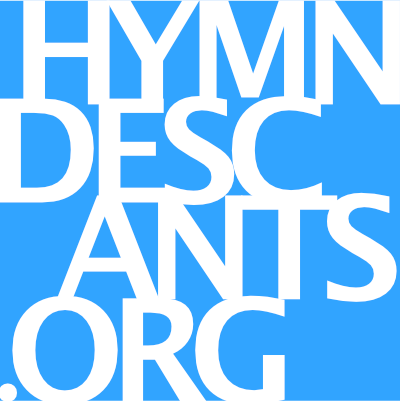(DEMO I: intro ad lib - hymnal verse - descant (high tessitura rises to Bb5, the lower version to G5.)
1 hymnal (Wm. H. Monk)
On Jordan's bank the Baptist's cry
announces that the Lord is nigh;
awake and hearken, for he brings
glad tidings of the King of kings.
2. descant
All praise, eternal Son, to thee,
whose advent doth thy people free;
whom with the Father we adore
and Holy Spirit evermore.
WINCHESTER NEW is neither new, nor in any way related to Winchester. Its etymology is not even a single tune, given that since its 1690 emergence in a north German hymnal, Musicalisch Hand-Buch der Geistlichen Melodien, it has been adapted to varying meters. It came into its English form and its current meter (8.8.8.8, or LM) in 1742, published in the seminal edition A Collection of Tunes Set to Music as they are commonly Sung at the Foundery, edited by John Wesley. He named it SWIFT GERMAN TUNE, but it acquired other names (and meters) until it emerged as WINCHESTER NEW with William Henry Monk's harmonization in Hymns Ancient and Modern (1861); the finished harmony was refined in the fires of The English Hymnal (1906). The earliest form of the tune is anonymous, though it is frequently misattributed to a hymnwriter who wrote a text that was sung to a variant of the tune.
On Jordan's bank was written in Latin - Jordanis oras praevia - by the French hymnodist Charles Coffin (pr. sharl co-fenh) and published in the Paris Breviary (1736); it was translated by John Chandler a century later, in English along with the Latin (The Hymns of the Primitive Church, 1837). The original was six verses, but H&AM compressed it to five. This resulted in alterations made by unnamed 'others,' and the liberties taken with the Latin in the final two verses are evident.
Updated Oct 2022: Two versions are now included (one with a high of G and one with B flat), along with several voice leading adjustments in the organ, and corrected version numbering on score.
File includes two versions
Descant verse:
All praise eternal Son to thee
whose advent doth thy people free;
Whom with the Father we adore,
and Holy Ghost forevermore.
– Charles Coffin (1676-1749)
tr. Charles Winfred Douglas

